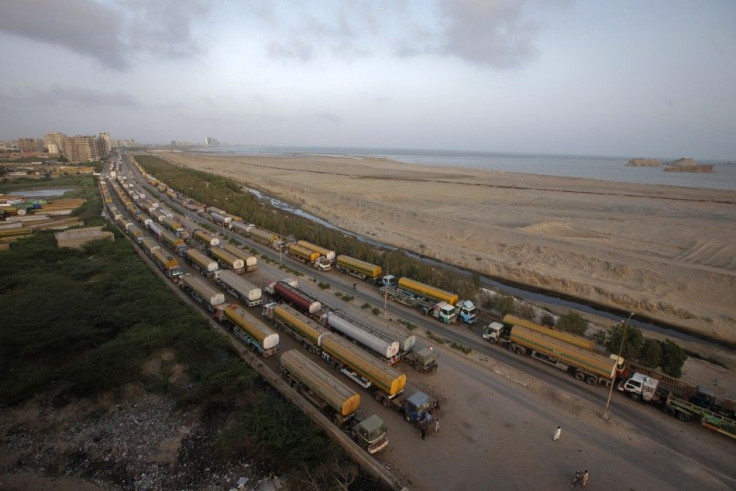Pakistan Plans To Re-Open NATO Supply Routes To Afghanistan

Pakistan has ordered an end to a supply route blockade against NATO forces, said Information Minister Qamar Zaman Kaira on Wednesday.
This will end a six-month standoff during which Pakistan refused to allow NATO to transport supplies via its overland routes into landlocked Afghanistan, where international troops are fighting against Taliban, al Qaeda and other insurgent forces while training Afghan personnel to take over national security by 2014.
Pakistan shut down its land routes last November after U.S. airstrikes inadvertently killed 24 Pakistani troops. The incident greatly damaged the already fragile alliance, and a diplomatic gridlock between the United States and Pakistan has kept the important supply line closed since.
NATO has meanwhile used more expensive and time-consuming means of getting supplies into Afghanistan, including long overland routes that run from the Black Sea through Siberia and Central Asia.
In April, a motion to reopen NATO supply lines was approved by Pakistan's parliament. Now, says Kaira, a final decision is in the works.
All departments have been asked to conclude their negotiations in the quickest possible time, he said.
Transit fees are still being negotiated, as Pakistan officials would like to increase NATO payments for using the routes. Their proposed rates could result in significant earnings for Pakistan, totaling up to $1 million every day.
The United States, whose troops make up the majority of NATO forces in Afghanistan, would pay most of those fees. In return, Washington has requested better security for the privately owned trucks that carry vital supplies from Pakistan's port city of Karachi into Afghanistan.
Sources told Pakistani newspaper Dawn that pending these final negotiations, supply routes may open to NATO forces as early as next week, though no official date has yet been confirmed.
The agreement will bring an increase of aid funding from the United States, which will benefit Pakistan's struggling economy. Furthermore, Islamabad will likely be granted a bigger say in international efforts to plan a stable future for Afghanistan.
Kaira's announcement coincides with a statement from the Pakistan Embassy in Washington that President Asif Ali Zardari is likely to attend a major NATO summit in Chicago next week. There, NATO members and other contributors to the Afghanistan mission will coordinate plans and discuss a timeline for troop withdrawal.
The reopening of Pakistani land routes would also help facilitate NATO's planned withdrawal from Afghanistan by 2014.
© Copyright IBTimes 2024. All rights reserved.












